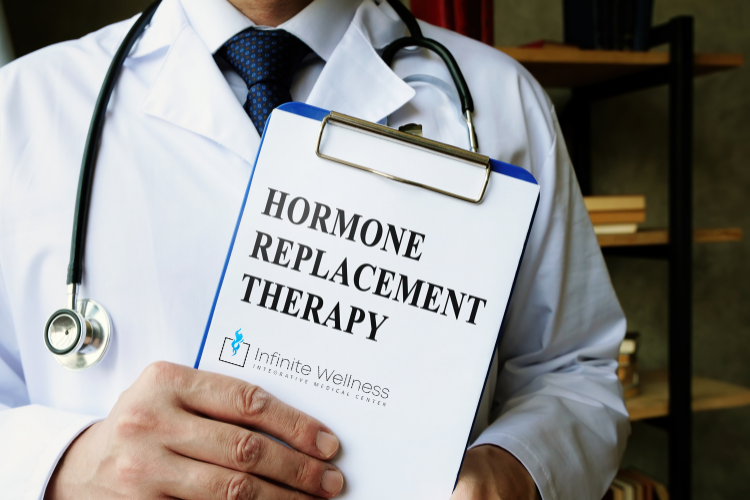Hormone replacement therapy, or HRT, is a medical treatment that involves supplementing the body with hormones. As people age, hormone levels naturally decline, resulting in various changes in physical and mental well-being. HRT aims to restore these hormones in multiple forms, including injections, patches, gels, or pellets. Here is more information about how this therapy can benefit your health:
Balancing Hormones
Hormonal balance is integral to the body’s overall function, influencing everything from mood to metabolism. When hormones like testosterone or estrogen decrease, this balance is disrupted. This disruption could result in noticeable changes. HRT works by reintroducing these hormones into the system.
The process aims to restore hormone levels to a range typical of a younger, healthier state. A medical provider will typically first measure your current hormone levels through blood tests. After reviewing the results, they can develop a specific treatment plan for you. They customize treatment because each person’s hormonal needs are unique. Regular monitoring enables adjustments to dosages, helping to maintain the intended balance.
Regaining Energy
One typical experience associated with hormonal decline is a persistent feeling of fatigue. This lack of energy may interfere with daily activities, affecting work, family life, and personal enjoyment. You may find it challenging to get through the day without feeling tired, even after a full night’s sleep.
This difficulty arises because hormones play a key role in regulating energy production and utilization within the body’s cells. When hormone levels are not optimal, metabolic processes might slow down, contributing to this feeling of sluggishness. Some people undergoing hormone replacement therapy may have changes in their energy levels.
By addressing the underlying hormonal imbalance, the body’s metabolic functions may operate more effectively. This could lead to a renewed sense of vigor and stamina, making it easier to engage with your daily responsibilities and hobbies. Discuss any changes in energy levels with your healthcare provider to ensure your treatment plan is meeting your individual needs.
Improving Sex Drive
A reduced interest in sexual activity, or a low libido, is another change that can occur with age. Hormones, particularly testosterone in both men and women, are closely linked to sexual desire. When levels of these hormones drop, your sex drive may decrease as well. Restoring hormone levels through HRT is a method used to address these concerns.
Addressing Hair Loss
Hair loss or thinning is a common sign of aging that affects both men and women, often linked to hormonal changes. Some hormones play a key role in male or female pattern baldness. An imbalance between testosterone and DHT can cause hair follicles to shrink, resulting in thinner hair and ultimately, hair loss.
HRT may influence the hormonal environment that contributes to hair thinning. By balancing testosterone levels, the therapy may slow the progression of hair loss. In some cases, individuals may observe regrowth or an improvement in hair thickness. The effects of HRT on hair are individual and depend on various factors, including genetics and the specific hormonal imbalance being treated.
Schedule Hormone Replacement Therapy Today
Understanding the potential effects of hormone replacement therapy is a step toward addressing your health concerns. HRT is a personalized medical treatment designed to restore hormonal balance and alleviate symptoms associated with hormonal decline. If you are experiencing changes related to energy, libido, or hair loss, exploring your options is a proactive measure. Contact a rejuvenation center to schedule a consultation with a healthcare provider and initiate a discussion about your health goals.
